Earth and Environmental Systems
Projects in this launchpad focus on the state of our planet’s ecosystems. Researchers collect data on current conditions and on changes in the environment. This work helps us understand how climate change is affecting our planet over time.

Capturing Enzymes to Improve Bioremediation of Petroleum Spills
This project seeks to identify the enzymes that enable microbes to break down and disperse oil that has spilled into ecosystems.
PI: Drew Steen, Associate Professor of Biological Sciences and Earth Sciences
USC Dornsife College of Letters, Arts & Sciences
Research Launchpad: Earth and Environmental Systems
More About this Research
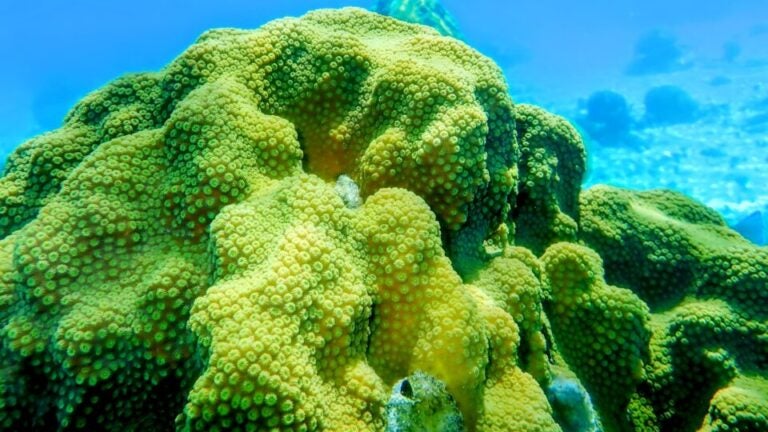
Coral Biodiversity and Conservation in Indonesia’s Coral Triangle
This project monitors the health and biodiversity of reefs in the coral-rich waters off Indonesia.
PIs: Carly Kenkel, Wilford and Daris Zinsmeyer Early Career Chair in Marine Studies and associate professor of biological sciences; Adib Mustofa, Ph.D. student in marine and environmental biology
USC Dornsife College of Letters, Arts & Sciences
Research Launchpad: Earth and Environmental Systems
More About this Research
Visit the Cnidarian Evolutionary Ecology (CEE) Lab website >>
Story: How to help save coral reefs >>
Story: Surprising discovery about coral genetics and resilience >>
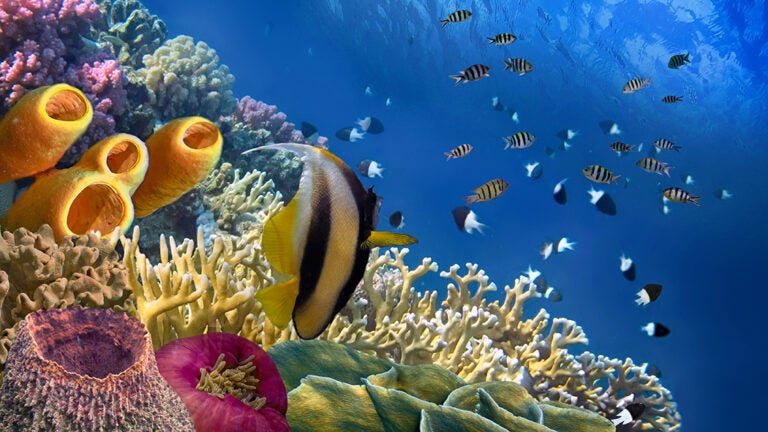
Coral Restoration and Resiliency in the Dominican Republic
This project supports community-focused collaboration on coral conservation and restoration in the Caribbean.
PI: Carly Kenkel, Wilford and Daris Zinsmeyer Early Career Chair in Marine Studies and associate professor of biological sciences
USC Dornsife College of Letters, Arts & Sciences
Sponsored by the Mary Gard Jameson Foundation
Research Launchpad: Earth and Environmental Systems
More About this Research
Visit the Cnidarian Evolutionary Ecology (CEE) Lab website >>
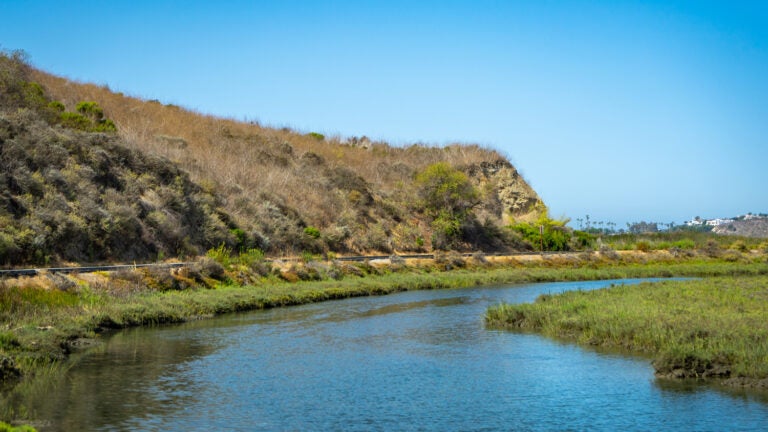
Effects of Sea Level Rise on Carbon-Capturing Estuarine Bacteria
This project monitors how sea-level rise is affecting carbon-storing microbes in Orange County, CA, salt marshes.
PI: Cameron Thrash, associate professor of biological sciences
USC Dornsife College of Letters, Arts & Sciences
Research Launchpad: Earth and Environmental Systems
Cross-Cutting Initiative: Climate and Carbon Management
More About This Research
Visit the Thrash Lab website >>
Story: What is ‘blue carbon’? Inside USC research on carbon capture >>

Environmental DNA and Biodiversity
This project collects and uses environmental DNA to help track biodiversity in Southern California’s San Pedro Channel.
PI: John Heidelberg, Director, Wrigley Marine Science Center and professor of biological sciences and environmental studies
USC Wrigley Institute for Environment and Sustainability in collaboration with Southern California Coastal Water Research Project
Sponsored by the Das Family
Research Launchpad: Earth and Environmental Systems
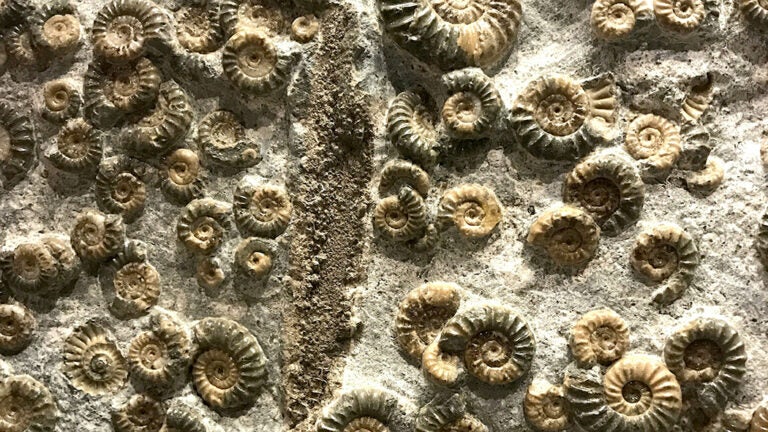
EXIST: Extinction Insights for a Sustainable Tomorrow
This projects looks to past mass extinctions to help develop insights that are of use for managing current extinctions caused by climate change.
PI: David Bottjer, Professor of Earth Sciences, Biological Sciences, and Environmental Studies
USC Dornsife College of Letters, Arts & Sciences
Research Launchpad: Earth and Environmental Systems
More About this Research

Genetics and Evolution of the Channel Island Fox
This project tracks the genetic biodiversity and health of California’s Channel Island foxes, a critically endangered species.
PI: Suzanne Edmands, professor of biological sciences
USC Dornsife College of Letters, Arts & Sciences
Sponsored by the Offield Family Foundation
Research Launchpad: Earth and Environmental Systems
More About this Research
Visit the Edmands Lab website >>
Story: USC, Natural History Museum collaborate on fox survival >>
Paper: Genomic recovery and demographic recovery in the Channel Island fox >>
Paper: Effect of geography and captivity on Channel Island fox microbiome >>
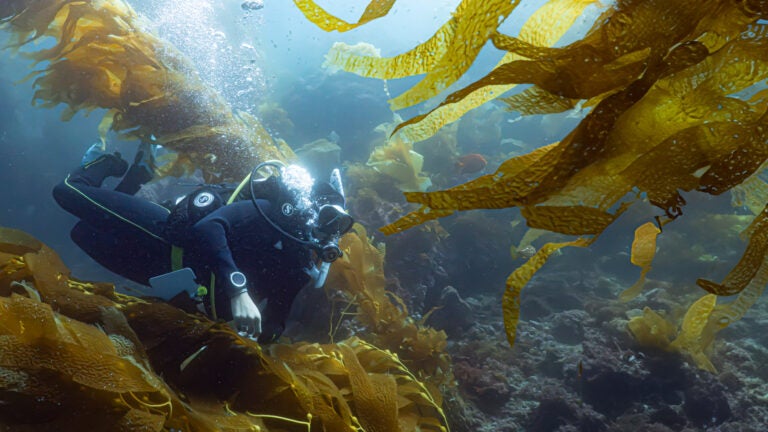
Microbe-Carbohydrate Interactions in Healthy and Resilient Kelp Forests
This project investigates how interactions between kelp’s microbiome and carbohydrate-based mucilage affect the organism’s health.
PI: Naomi Levine, Gabilan Distinguished Professor in Science and Engineering and Professor of Biological Sciences, Quantitative and Computational Biology, and Earth Sciences
USC Dornsife College of Letters, Arts & Sciences
Funded by the Mary Gard Jameson Foundation
Research Launchpad: Earth and Environmental Systems
More About this Research
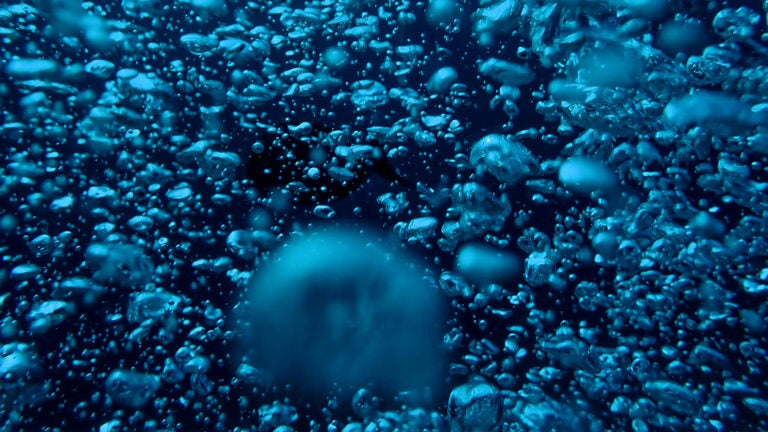
Microbial Consumption of Methane in Urban-Adjacent Marine Basins
This projects measures how much methane is being consumed by microbes living on the seafloor in Southern California’s San Pedro Channel.
PI: Karen Lloyd, Wrigley Chair in Environmental Studies and Professor of Earth Sciences
USC Dornsife College of Letters, Arts & Sciences
Research Launchpad: Earth and Environmental Systems
Cross-Cutting Initiative: Climate and Carbon Management
More About this Research
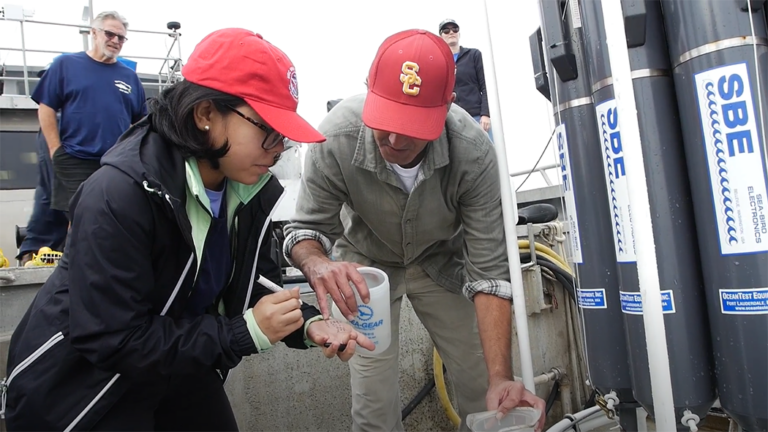
San Pedro Ocean Time-Series
In operation since 1998, this project tracks the long-term health of the waters in Southern California’s San Pedro Channel.
PI: John Heidelberg, Director, Wrigley Marine Science Center and professor of biological sciences and environmental studies
USC Wrigley Institute for Environment and Sustainability
Research Launchpad: Earth and Environmental Systems
More About this Research
Applied Environmental Solutions
This launchpad is the Wrigley Institute’s research-and-development arm for the environment. These projects test possible solutions to environment and sustainability problems, so we can determine suitability for large-scale implementation and impact.

Accelerating Alkalinity Reactions for Carbon Capture and Storage
This project develops chemical resins to increase the ocean’s capacity for carbon storage.
PI: Seth John, associate professor of Earth Sciences
USC Dornsife College of Letters, Arts & Sciences
Research Launchpad: Applied Environmental Solutions
Cross-Cutting Initiative: Climate and Carbon Management
More About This Research

Biologically Inspired Materials for Solar-to-Fuel Technologies
This project uses natural processes, such as photosynthesis, as models for chemical reactions that turn solar energy into hydrogen fuel.
PI: Smaranda Marinescu, associate professor of chemistry
USC Dornsife College of Letters, Arts & Sciences
Research Launchpad: Applied Environmental Solutions
More About this Research
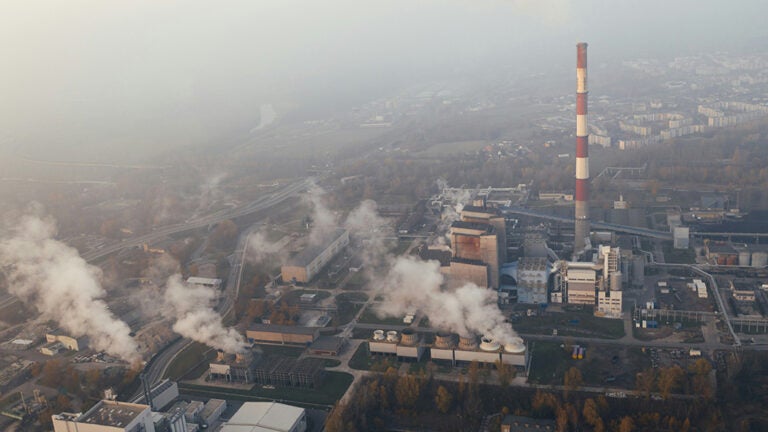
Captured Carbon Dioxide for Fungal Fermentation of High Value Compounds
This project investigates whether captured carbon dioxide can be used as raw material for usable compounds created by fungus.
PIs: Clay C. C. Wang, Professor of Pharmacology and Pharmaceutical Sciences; Smaranda Marinescu, Associate Professor of Chemistry
USC Mann School of Pharmacy and Pharmaceutical Sciences and USC Dornsife College of Letters, Arts & Sciences
Research Launchpad: Applied Environmental Solutions
Cross-Cutting Initiative: Climate and Carbon Management
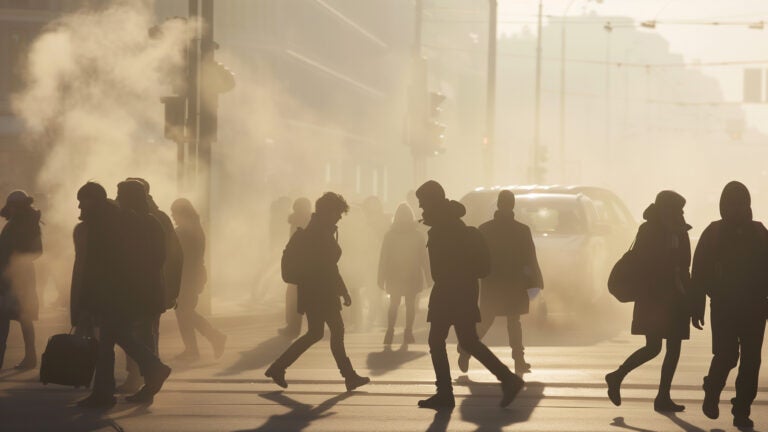
Carbon Capture and Its Effects on Public Health
This project investigates the effects of carbon capture technologies on air quality and public health.
PI: Sam Silva, Assistant Professor of Earth Sciences, Civil and Environmental Engineering, and Population and Public Health Sciences
Dornsife College of Letters, Arts & Sciences
Research Launchpad: Applied Environmental Solutions
Cross-Cutting Initiative: Climate and Carbon Management
More About this Research
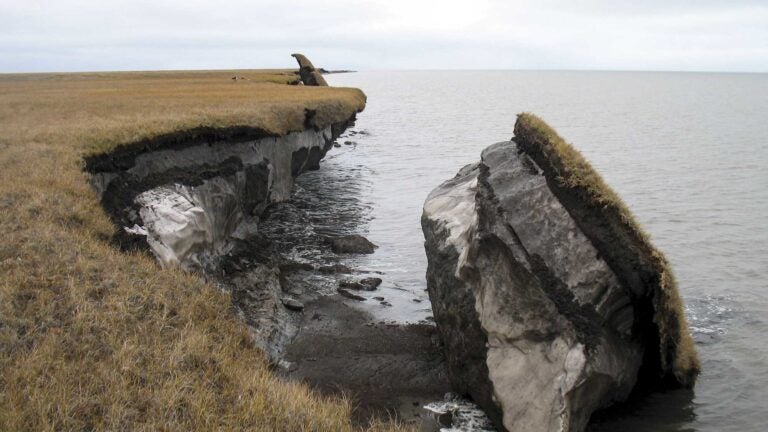
Enhanced Rock Weathering for Large-Scale Carbon Capture and Storage
This project investigates the scaleability and potential ecological impacts of marine enhanced rock weathering for carbon storage.
PI: Josh West, Professor of Earth Sciences and Environmental Studies
Dornsife College of Letters, Arts & Sciences
Research Launchpad: Applied Environmental Solutions
Cross-Cutting Initiative: Climate and Carbon Management
More About this Research

Next-Generation, Biodegradable Plastics Inspired by Medical Devices
This project is developing a new type of biodegradable, biocompatible plastic made from citric acid and calcium carbonate.
PI: Eunji Chung, Dr. Karl Jacob Jr. and Karl Jacob III Early Career Chair and associate professor of biomedical engineering and chemical engineering and materials science
USC Viterbi School of Engineering
Funded by the Seaver Institute
Research Launchpad: Applied Environmental Solutions
Cross-Cutting Initiative: Future of Plastics
More About This Research
Story: Seashells could hold a key to sustainable plastics >>
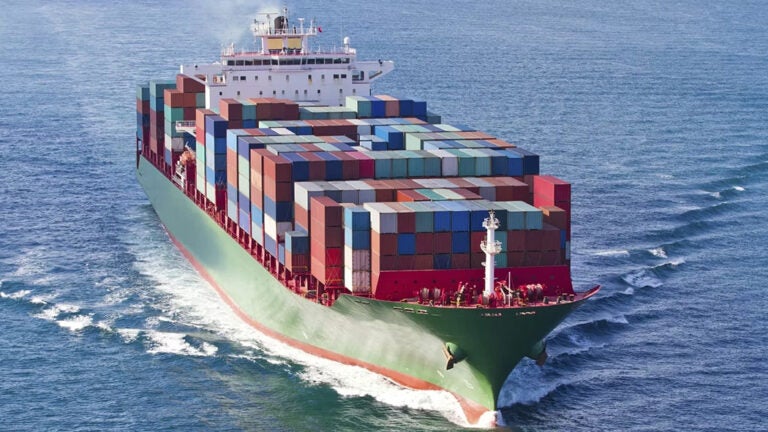
Ocean Impacts of Emerging Carbon Sequestration Methodologies
This project investigates whether carbon dioxide captured from shipping emissions can be safely stored in the ocean.
PI: William Berelson, Paxson H. Offield Professor in Coastal and Marine Systems and professor of Earth sciences, environmental studies, and spatial sciences
USC Dornsife College of Letters, Arts & Sciences
Research Launchpad: Applied Environmental Solutions
Cross-Cutting Initiative: Climate and Carbon Management
More About this Research
Visit the Berelson Lab website >>
Story: Ocean-inspired tech to speed carbon capture from ships >>
Story: Berelson Lab leads carbon capture at USC >>
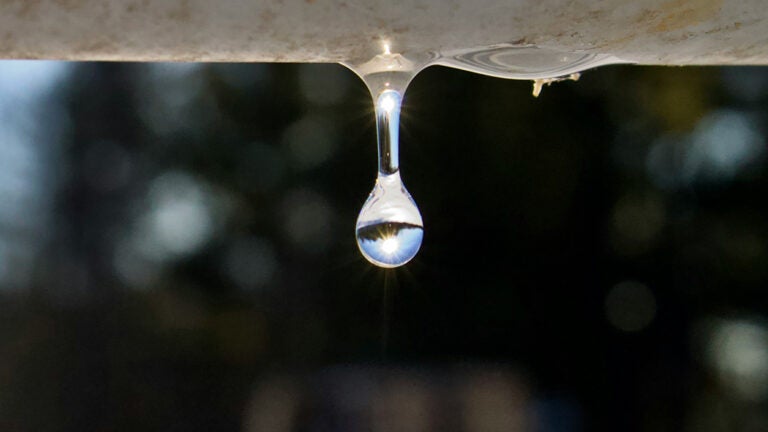
Redox-Active Materials for Sustainable Hydrogen Fuel Production
This project enhances the efficiency of reactions that use sunlight to produce hydrogen fuel from water.
PI: Kandis Leslie Gilliard-AbdulAziz, WiSE Gabiland Assistant Professor of Civil and Environmental Engineering
USC Viterbi School of Engineering
Research Launchpad: Applied Environmental Solutions
Cross-Cutting Initiative: Climate and Carbon Management
More About this Research

Seawater-Assisted Electrochemical Carbon Sequestration
This project tests the manufacture of undersea structures as a method for capturing and storing carbon.
PI: Qiming Wang, Stephen Schrank Early Career Chair and Associate Professor of Civil and Environmental Engineering
USC Viterbi School of Engineering
Research Launchpad: Applied Environmental Solutions
Cross-Cutting Initiative: Climate and Carbon Management
More About this Research
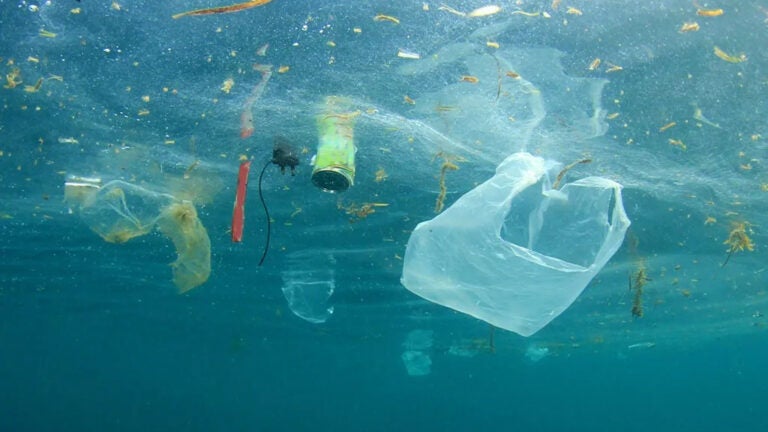
Upcycling Ocean Plastics Into Sustainable Detergents and Dyes
This project uses chemical catalysts and fungi to convert plastic trash from the ocean into sustainable laundry detergents and clothing dyes.
PIs: Richard W. Roberts, professor of chemical engineering and materials science; Clay C.C. Wang, chair and professor of pharmacology and pharmaceutical sciences; Travis J. Williams, professor of chemistry
USC Wrigley Institute for Environment and Sustainability in collaboration with USC Sea Grant; USC Viterbi School of Engineering; USC Mann School of Pharmacy and Pharmaceutical Science; and USC Dornsife College of Letters, Arts & Sciences
Supported by the National Oceanic and Atmospheric Administration
Research Launchpad: Applied Environmental Solutions
Cross-Cutting Initiative: Future of Plastics
More About this Research
Social Transformation

Advancing Smarter Decisions About Atmospheric Carbon Removal
This project develops tools and insights to help people and organizations make informed decisions about direct air capture of carbon dioxide.
PI: Joe Árvai, Dana and David Dornsife Chair in Psychology and Professor of Biological Sciences and Environmental Studies
Dornsife College of Letters, Arts & Sciences
Research Launchpad: Social Transformation
Cross-Cutting Initiative: Climate and Carbon Management
More About this Research
Paper: Consumer acceptance of products from carbon capture and utilization >>
Blog: Checking Out a Prototype CO2 Capture Facility in Switzerland >>
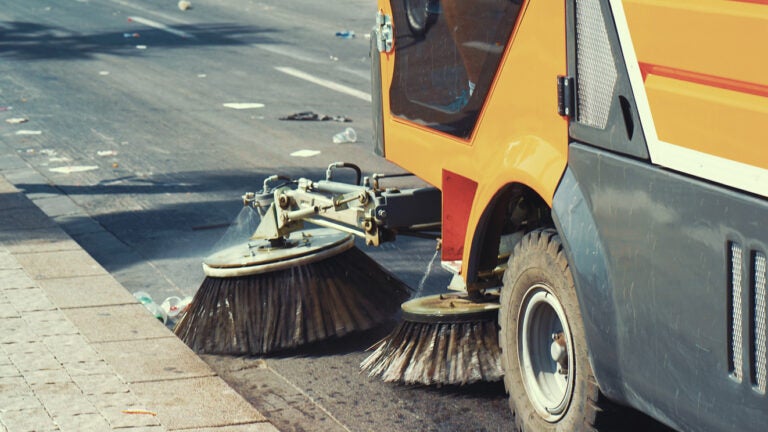
Clean Streets, Clean Seas
This project tests methods for removing microplastics from city streets before they reach ocean watersheds.
PIs: Amalia Almada, extension program leader, adjunct assistant professor (research) of environmental studies; Jill Murray, water quality scientist
USC Sea Grant in collaboration with City of Santa Barbara
Supported by the National Oceanic and Atmospheric Administration
Cross-Cutting Initiative: Future of Plastics
Research Launchpad: Social Transformation
More About this Research

Consumer Attitudes Toward Trash-Derived Products
This project studies consumer attitudes toward products made from ocean plastics and educates the public about the benefits of these products.
PIs: Joe Árvai, Director, Wrigley Institute for Environment and Sustainability, Dana and David Dornsife Professor of Psychology, professor of environmental studies and biological sciences; Karla Heidelberg, Director, USC Sea Grant, professor of the practice of biological sciences and environmental studies
USC Wrigley Institute for Environment and Sustainability in collaboration with USC Sea Grant
Supported by the National Oceanic and Atmospheric Administration
Research Launchpad: Social Transformation
Cross-Cutting Initiative: Future of Plastics
More About this Research
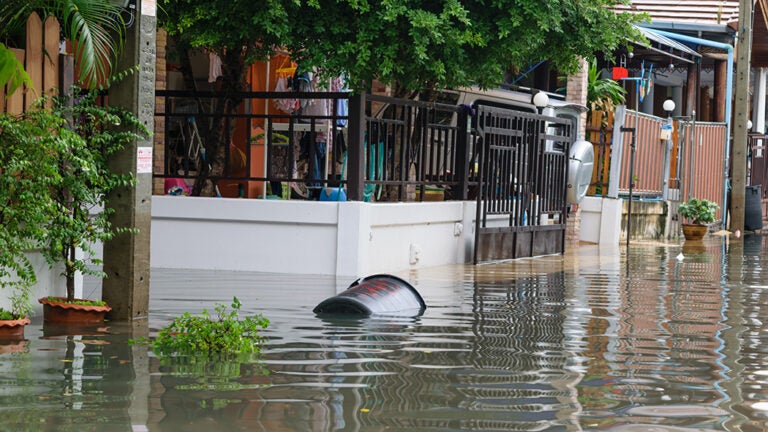
Effects of Climate Risk on the Real Estate Industry
This project tests whether the provision of property-level climate-risk data affects homebuyer interest in properties.
PI: Matthew Kahn, Provost Professor of economics and spatial sciences
USC Dornsife College of Letters, Arts & Sciences
Research Launchpad: Social Transformation
More About This Research
Story: Californians affected by climate-triggered insurance changes >>
Story: Faculty shift the conversation on climate change >>
Paper: The Impact of Climate Risk Disclosure on Housing Search and Buying Dynamics >>
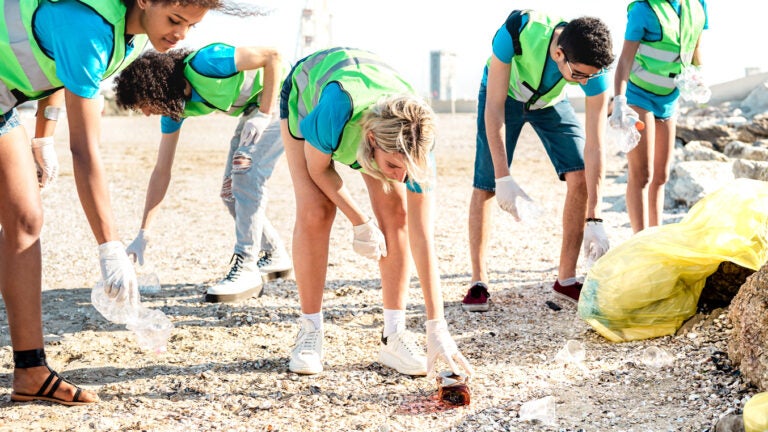
Marine Debris Prevention
This project funds the tracking and cleanup of marine debris, such as plastic trash, on Southern California beaches.
PIs: Amalia Almada, extension program leader, adjunct assistant professor (research) of environmental studies (USC); Theresa Sinicrope Talley, academic coordinator (UCSD)
USC Sea Grant in collaboration with University of California San Diego Scripps Institution of Oceanography
Supported by the National Oceanic and Atmospheric Administration
Cross-Cutting Initiative: Future of Plastics
Research Launchpad: Social Transformation
More About this Research
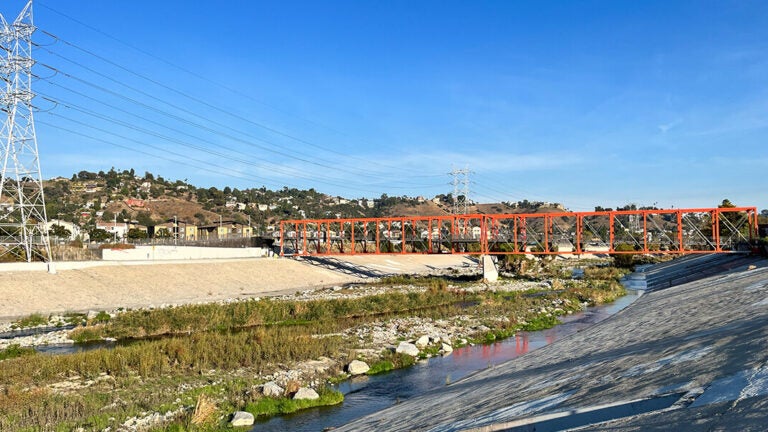
Establishing a Los Angeles River Observatory
This project collects data and community input to influence decisions about re-wilding the Los Angeles River.
PI: Alexander Robinson, associate professor of landscape architecture
USC School of Architecture
Research Launchpad: Social Transformation
More About this Research
Visit the oOR, LMLab website >>
Story: Three USC schools collaborate to reimagine the L.A. River >>
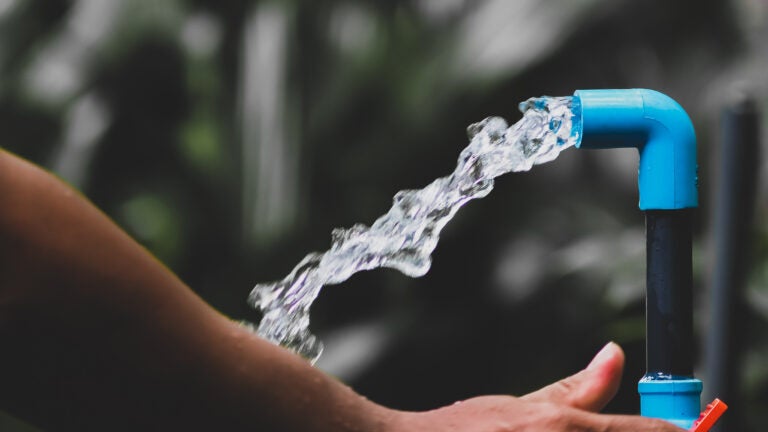
Improving Water Security in Urban Environments
This project develops methods for improving the maintenance and use of residential rainwater-capture systems in Mexico City.
PI: Paulina Oliva, professor of economics and spatial sciences
USC Dornsife College of Letters, Arts & Sciences
Research Launchpad: Social Transformation
More About this Research

Pocket Lodge: Sustainable Tiny Homes for Extreme Environments
This project designs and builds sustainable tiny homes for seasonal park rangers in Joshua Tree National Park.
PIs: Douglas Noble, FTI Fellow Professor and ACSA Distinguished Professor of Architecture; Karen Kensek, Professor of the Practice and ACSA Distinguished Professor of Architecture
USC School of Architecture
Sponsored by the Lott Foundation
Research Launchpad: Social Transformation
Looking for Research Funding?
The Wrigley Institute offers funding to support USC faculty and graduate students pursuing innovative research along environmental and sustainability themes. Depending on the program, awards range from $5,000-$50,000 and are offered on one- and two-year cycles.